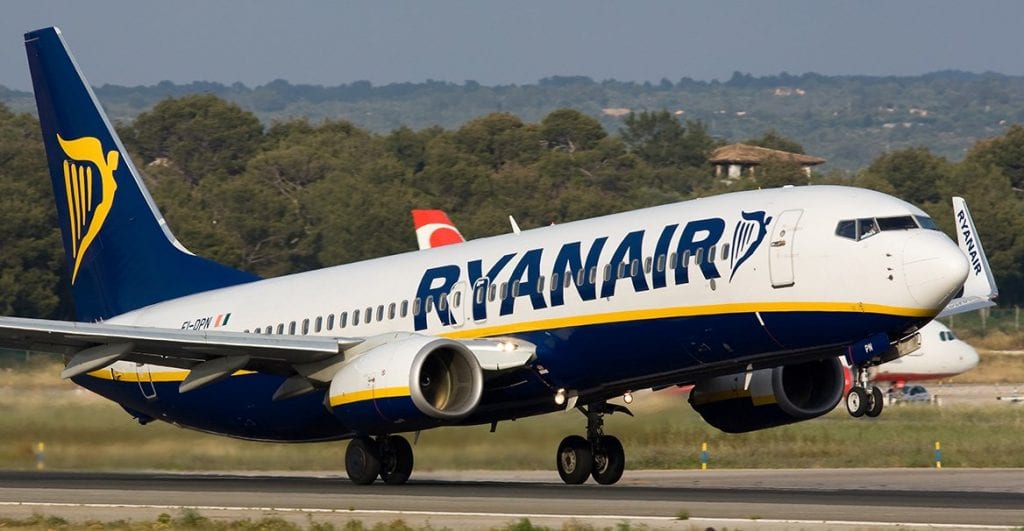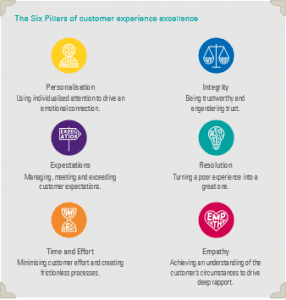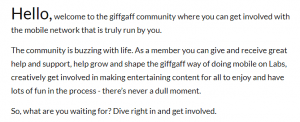
Are customer expectations on the rise?
Is anyone else wondering how Ryanair are getting away with delivering such shocking service levels?
Surely there’s a point beyond which even the most ruthless bargain-hunter (and I count myself as one of those) will not go.
Maybe they have finally hit that point, the company’s share price has fallen 6% in the last month. However, it is still up 274% over the last five years and is due to deliver high earnings growth over the next couple of years. Many business analysists predict that, once this particular fiasco is over, customers will return if the airline can get them where they want to go, at the price they want to pay. These are clear and simple expectations with absolutely nothing expected over and above – in fact we expect ‘no frills’, we expect to be charged for everything that isn’t the ticket itself, we expect flight delays and changes. Simply put, our expectations of Ryanair are so low that they’re easy to meet. You could also argue that there’s relatively little choice of airline in many of the UK’s regional airports so unless someone else, with better customer service, can get us to the right place, on the right day, at the right price, Ryanair might continue to benefit.
Elsewhere, where choice is increasing and customers want more than the ‘cheap as chips’ option, customer expectations appear to be rising.
Customer experience experts KPMG Nunwood say in their Making Memories 2016 UK report that
“with customer expectations continuing to rise, it is becoming more and more difficult for firms to stay abreast of expectations, let alone exceed them”
So whilst some organisations such as Ryanair are continuing to survive by meeting low expectations of service and value, how do others keep up with the rise in expectations?
Here are some tips
1. Know exactly what your customers expect from you, it might not be quite what you assume
2. Map the various customer journeys they follow to get what they expect
3. Focus on doing a few things outstandingly well, you can’t be all things to all people
4. Be deliberate, pick the moments in a customer’s journey to surprise and delight them – this will make them memorable (for the right reasons)
5. Make dealing with complaints one of these moments, it has long been shown that resolution is a great opportunity to create customer advocates
6. If human beings are part of the process make sure they add value, all too frequently they just slow down the process of giving customers what they want
7. Unlock empathy in your people, it’s a human quality, we all have it, but most organisations inadvertently supress it
8. Create conditions that encourage every employee to think about how they can exceed expectations, not just at the frontline, and empower them to do so
So what do customers expect?
 KPMG Nunwood’s Six Pillars are a good place to start. Their Customer Experience Excellence Centre is the world’s largest customer experience think tank and has researched this subject extensively across three continents, over seven years, gathering over 1.4 million consumer evaluations. They found that a universal set of emotional qualities defines an outstanding customer experience.
KPMG Nunwood’s Six Pillars are a good place to start. Their Customer Experience Excellence Centre is the world’s largest customer experience think tank and has researched this subject extensively across three continents, over seven years, gathering over 1.4 million consumer evaluations. They found that a universal set of emotional qualities defines an outstanding customer experience.
Stories of companies achieving the highest levels of experience and performance show of course that most customers have some expectations specific to the products or services that they are buying. Thinking of my own experience as a customer of a fabulous green energy company, I expect them to create all of these emotional responses when I interact with them and I also have a specific expectation that they know everything about how else I can ‘be green’. Are wood-burning stoves more environmentally friendly than having the heating on for an extra few hours? How else can I reduce my carbon-emissions? Maybe unfair questions for them but as the ‘greenest’ people in my world I expect them to know. If this is the case for most of their customers there are clear implications for how they share this knowledge through each of their customer channels.
The Six Pillars tell us about customer expectations here and now, but what of the future?
Millennials (generally defined as those born 1981-2001) are soon to equal and then surpass the purchasing power of Baby Boomers, as well as becoming decision-makers in major organisations (thereby affecting the buying power of both B2C and B2B). Their increasing expectation to be able to access services 24/7 is well known, but they have other expectations that are perhaps harder to meet.
For millennials, buying products and services is a social thing – they are much more likely to pay attention to recommendations on social media before buying. Moreover they are more inclined to go to businesses with a strong social, ethical conscience and a purpose that is about more than just making money. Once they’ve made a purchase, they are likely to share their experience with others so the goal of achieving strong customer advocacy and loyalty becomes ever more important.
Even harder for us Baby Boomers to understand, millennials want to get involved in shaping, improving, even innovating the products and services they use.
Giffgaff are a great example of an organisation that gets this need for involvement and influence. The mobile network was launched as an experiment in 2009 by Mike Fairman, an O2 lifer, who believes that companies are run better by their members than in a normal business model. They have no call centre as members answer each other’s questions (typically within 90 seconds) 24 hours a day, seven days a week. They put forward their own ideas for products and services, implementing the most popular. Their welcome page sums up the spirit of the relationship.
The model has proved so successful that giffgaff have now branched out into offering loans.

Looking even further ahead, students will soon be graduating with an average debt of £50,800 after interest rate hikes, they are understandably expecting more from universities in terms of quality of education, employability, career potential, than many students would in the past. No doubt they will go into the world ready to raise the bar even further on what they expect for their money.
Where have you experienced great customer service and what made it different?
